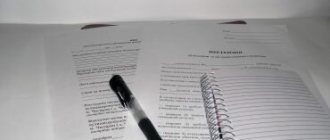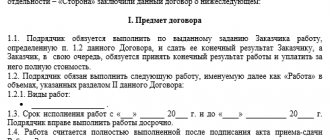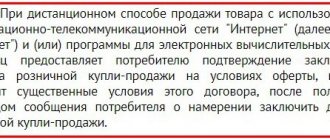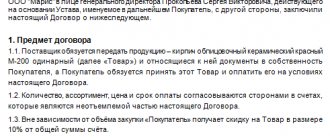Source: RosKvartal® - Internet service No. 1 for management organizations
The final decision of the general meeting must be formalized in the form of minutes of the general meeting with all voting ballots attached to it. The minutes must be drawn up in writing no later than 10 days from the date of the meeting, since no later than this period the results of the meeting must be brought to the attention of the owners of the premises in the house (Part 3 of Article 46 of the Housing Code of the Russian Federation).
In the case of an absentee meeting or an absentee part of an in-person meeting, this period is fixed from the end of the reception of written decisions of the owners, established in the notice of the general meeting. All data must correspond to those specified in the notification of the OSS.
The requirements for the preparation of the protocol are established by order of the Ministry of Construction of the Russian Federation dated January 28, 2019 No. 44/pr. The secretary of the general meeting, whose candidacy was selected at the OSS, conducts and draws up the minutes.
Protocol header
- title of the document “Minutes of the general meeting of owners of premises in an apartment building”;
- date (the date of the minutes is the date of summing up the results of the general meeting: the end of the counting of votes) and the registration number of the minutes (serial number from the beginning of the calendar year);
- date of the meeting (if the meeting lasted several days, then the start date and end date of the meeting are indicated);
- place of the meeting (indicate the address at which the meeting was held in person, or the address at which decisions were collected if the meeting was held in absentia);
- title to the content part (must contain information about the address of the MKD, the type of general meeting and the form of its holding).
Structure and content of the document
There is no standard-approved sample of such a document.
However, there are a number of requirements for how it should be written and what information should be included.
The text must be typed on a computer.
The registration always starts from the upper right corner - there is the address and number of the house whose owners held the meeting. Where exactly was the event (apartment, non-residential premises, office)? The exact time is also indicated .
There should also be information about:
- on whose initiative the meeting was organized (as a rule, this is the head of the partnership, although in principle any of the owners can initiate such an event);
- the main points of the agenda - formatted as a numbered list;
- references to legislation, the application of which article in which context was discussed;
- the number of people who showed up (determined before the start);
- voting on each issue - how many were for, how many were against, were there any abstentions?
- were all points closed?
- decisions made on each of the problems (condensed).
At the bottom of the form, the head of the partnership and the secretary put signatures with a transcript. If there was an absentee vote, the ballots must be included with the minutes of the meeting of the members of the partnership.
These papers are stored in the office of the association and, upon request, can be presented for review to any of the residents of the apartment building.
You can download a sample HOA staffing table, as well as estimates of income and expenses on our website.
Contents of the protocol
- Information about the initiator of the OSS: for legal entities, full name, OGRN, record number of the state registration of the legal entity, TIN; for individuals - full name in accordance with the identification document, room number and details of the document confirming ownership of such premises;
- Information about the chairman, secretary and members of the counting commission: full name, room numbers and details of documents confirming ownership of the specified premises (if the issue of choosing these persons is not included in the agenda of the meeting);
- Information about those present and invited;
Those present are those owners who attended the meeting in person. The invitees can be different people, for example, a lawyer who can explain some legal issues to the owners.
For invited persons, the protocol indicates the full name, passport details and purpose of participation - for individuals; OGRN, name of the legal entity, if necessary - power of attorney (for legal entities).
- Quorum information;
You need to indicate the total number of votes (separately for residential and non-residential premises), the next line is the presence of a quorum. The number of votes of owners present at the meeting, expressed as a percentage of the total number of votes, is the quorum.
- Information on the total area of residential and non-residential premises in the apartment building;
- Agenda;
All items on the agenda must be numbered. For each question, the wording of the question is written, who voted how, who did not take part in the vote, and what decision was made. All wording must be in the third person plural - “adopted”, “decided”, “decided”.
- The place where the OSS documents (copies) will be stored;
- Signatures.
The protocol must be signed by at least three persons: surnames, initials and signatures of the chairman, secretary, and counting commission. There may be one person on the counting commission, but if there are more, then everyone signs. Next to the signature there should be the date when the document was signed (clause 4 of the order of the Ministry of Construction of the Russian Federation dated January 28, 2019 No. 44/pr).
If the candidates for chairman, secretary and counting commission were rejected at the meeting, the minutes are signed by the initiator of the meeting.
Competence of the general meeting of HOA members
The competencies of the governing body of the partnership are outlined in Article 145 of the RF Housing Code, which regulates the activities of the meeting.
The competencies of the governing body include:
- approval of the HOA charter or amendments to the current charter;
- making decisions on changing the status of the partnership, its abolition or reorganization;
- selection of the liquidation commission, determination of the liquidation balance;
- election of the management staff of the partnership, as well as termination of the powers of the current head of the HOA;
- appointment of an audit commission in accordance with the provisions of the charter of the homeowners association;
- approval of the tariff schedule for mandatory contributions and payments of the partnership;
- formation of the procedure for approving the reserve or special fund of the HOA;
- making decisions on issues of obtaining loans or credits;
- distribution of income from the activities of the organization;
- approval of planning documentation: annual plan for current and major repairs, estimate documentation;
- making a decision on approval of the annual report on the activities of the organization and the annual report of the audit commission with the obligatory attachment of the opinion of the accountant of the partnership;
- determining the amount of monetary incentives for members of the partnership;
- consideration of complaints against the actions of the head of the owners association;
- discussion of other issues that do not contradict the Housing Code or the Constitution.
Mandatory annexes to the protocol
Each protocol has a number of mandatory annexes, without which decisions of the OSS can be challenged as invalid (clause 20 of the order of the Ministry of Construction of the Russian Federation dated January 28, 2019 No. 44/pr).
1. Register of premises owners
It is necessary to indicate for each owner:
- Full name of the individual,
- name and OGRN of the legal entity,
- numbers of premises belonging to them,
- the number of votes owned by the owner.
2. Notice of the OSS
3. Register of delivery of notification of the OSS to the owners
An exception is the case when at one of the previous general meetings of owners a decision was made on a different method of notification - not by registered mail or delivery against signature, but, for example, by posting a notice on an information stand. In other cases, a register must be submitted in which the owners have signed, or a register of postal items.
4. List of owners of apartment building premises who were present at the in-person part of the meeting, as well as a list of invited persons
This list must also contain information about all owners of the premises (or their representatives).
5. Powers of attorney or copies thereof
This application is needed if there were representatives of the owners at the meeting. All powers of attorney are filed with the protocol.
6. Documents that were discussed on the agenda and about which decisions were made
For example, if a management agreement was adopted at the OSS, its text is attached.
7. Owner decisions
This is the most voluminous application. All decisions must be properly documented.
8. Other documents or materials that the decision of the OCC itself indicates as mandatory annexes to the protocol.
Template for minutes of the general meeting of owners.docx
Order of conduct
The convening of the governing body of the partnership and its rules are regulated by Article No. 146 of the Housing Code of the Russian Federation.
This article states:
- each member of the partnership must be sent a written notice on behalf of the person initiating the convening of the governing body; the notice must be sent by mail or delivered against signature.
The owner initiating the meeting must provide information about himself and indicate in the agenda the purpose of the meeting with a list of issues discussed, the place and exact time of the start of the event. Issues not previously identified on the agenda are not discussed; - a meeting is considered valid if only members of the partnership or their representatives are present at it in a number that ensures a quorum;
- If the voting concerns issues outlined in Article 145, then a decision on these issues can only be made if there are 2/3 votes for one of the positions on the issue;
- A meeting of the HOA board can only be held by the chairman or his deputy; in the absence of these persons, the meeting is held by one of the full members of the meeting.
IMPORTANT: Thus, any participant in the partnership can initiate a meeting of the HOA if the notification is properly completed and the procedure for its distribution is observed.
Document status
Decisions and protocols are official documents (Part 1 of Article 46 of the RF Housing Code). This means that the mandatory requirements for protocols and decisions established by the federal executive body must be met.
An official document must certify a fact that entails legal consequences. Decisions of the OSS are binding on all owners of premises and thus entail legal consequences (Part 5 of Article 46 of the Housing Code of the Russian Federation).
Order No. 44/pr became the starting point and outlined the necessary parameters of the OSS documents; before its adoption, there were no clear rules for execution and any arbitrarily drawn up paper could be considered a protocol or a decision of the OSS until it was challenged in court. This provided unlimited opportunities for forging documents.
On March 5, 2021, Order of the Ministry of Construction of the Russian Federation dated January 28, 2019 N 44/pr, approving new requirements for the preparation of minutes of general meetings of owners, came into force, and the previously valid Order of the Ministry of Construction of the Russian Federation dated December 25, 2015 N 937/pr lost its force.
You can read the full text of Order No. 44/pr at this link [link to the text of the order], and for those who would like to know in detail the differences from the old order, we are publishing a short review from our friends from the Domscanner project.
Most of the guidelines remain unchanged, and the bulk of the innovations are of a technical nature.
1. If the issue of electing the chairman, secretary, and persons counting votes is not included in the agenda of the general meeting, then the introductory part of the minutes must contain information about these persons. Previously, the composition of this information was not regulated. Now it is required to indicate the full name, numbers of premises in the house owned by them and details of documents confirming such right.
2. The list of persons who took part in the meeting (those present) and those invited to participate in it is now always a separate appendix to the minutes. Previously, if there were no more than 15 persons present, their list, as well as the list of invitees, could be indicated in the introductory part of the protocol. Now, paragraph 15 of the Requirements stipulates that the Lists of those present and invited persons are drawn up as an appendix to the minutes of the general meeting, while the minutes of the general meeting indicate the total number of persons present and invited persons from Fr.
3. Previously, the Requirements prohibited the formulation of agenda items “Miscellaneous”. In the new order of the Ministry of Construction of the Russian Federation, this prohibition is detailed: it is not allowed to include on the agenda of the general meeting issues with the wording “Miscellaneous”, “Other issues” or other wording similar in semantic content.
4. In the sections of the main part of the protocol for each item on the agenda, after the words “DECIDED (DECIDED) ....” decisions taken are indicated. Previously, a decision could contain one or more points, each of which was numbered. Now such a provision is not contained in the order.
5. The changes also affected the mandatory annexes to the protocol.
5.1. The register of owners may not contain the number of votes, but must, in addition to information about the owners (full name of an individual, name and OGRN of a legal entity), numbers of their premises, details of documents confirming their ownership of the premises, contain:
- information about the form of ownership for each premises,
- information about the area of each room in an apartment building,
- information about the share in the ownership of such premises belonging to each of their owners.
Please note that the forms of ownership, according to Art. 8 of the Constitution of the Russian Federation are, first of all, private, state and municipal property.
5.2. Instead of “a notice of a meeting,” a “copy of the text of a notice of a general meeting” is now required. Previously, it was considered necessary to attach to the protocol exactly the message that, for example, had already been posted in public places and which someone had damaged or torn down. Now the indication of the application is more clear.
5.3. The register of delivery of messages about holding a meeting has been replaced with “documents (copies of documents) confirming the sending, delivery of a message about holding a general meeting to the owners or its placement in the premises of a given house, determined by a decision of the general meeting or in the system in accordance with Part 4 of Article 45, Part 2 and 3 articles 47.1 of the Housing Code of the Russian Federation.”
5.4. As we have already indicated above, lists of those present and invited persons are now required to be prepared as an appendix. The content of information about those present and invited has not changed.
The requirement for these lists to include the signatures of those present remains, i.e. who took part in the meeting of owners or their representatives. In practice, when holding meetings in person, in absentia and in absentia, this requirement can be difficult to implement, because ballots may be collected in ways that make it difficult for voters to sign the lists.
5.5. “Powers of attorney (copies)” have now been replaced with documents certifying the powers of representatives (for example, birth certificate, charter of a legal entity, extract from the Unified State Register of Legal Entities, etc.). However, now these documents must be attached to the protocol not only in relation to voters, but also to invited persons.
5.6. New requirements have been added to written decisions (ballots) of owners: it is mandatory to have information that allows identifying the persons who filled them out, as provided for in clause 13 of the Requirements. The date of filling out the ballots, as well as data on the expression of will of the owners of the premises and their representatives, must be indicated.
Clause 13 of the Requirements provides for the following information:
- in relation to individuals - full name of the owner and (or) his representative, indicated according to the citizen’s identity document; the number of the premises owned by him and the details of the document confirming this right; the number of votes the person has; name and details of the document certifying the authority of the owner’s representative (if necessary); signature of the owner of the premises in an apartment building or his representative;
- for legal entities - the full name and OGRN of the legal entity in accordance with its constituent documents; number of the premises owned by him and details of the document confirming ownership; Number of votes; Full name of the owner's representative; name and details of the document certifying the authority of the representative; representative's signature.
If previously most of this information was already indicated on the ballot, the number of votes was not always indicated.
5.7. Previously, other documents or materials could be attached to the minutes, which would be determined as a mandatory appendix to the minutes of the general meeting by a decision at the general meeting adopted in the prescribed manner. Such decisions were rarely made in practice. Now other documents may be attached to the minutes of the general meeting if the content of the minutes of the general meeting contains references to them.
An important innovation: the initiator of the general meeting is now responsible for preparing decisions (ballots) of the owners.
6. Requirements have been added to the technical side of the preparation of the minutes: the pages of the minutes of the general meeting and each appendix to it must be numbered and bound by the secretary of the general meeting, the last page of the minutes must be signed by the person presiding at the general meeting.
7. The case is specified when the protocol is signed not only by the chairman, secretary, persons counting votes, but also by other owners of the premises. We are talking about making a decision on the creation of an HOA: by virtue of Part 1.1 of Article 136 of the Housing Code of the Russian Federation, the minutes of the general meeting at which decisions were made on the creation of a homeowners’ association and on the approval of its charter are signed by all owners who voted for the adoption of such decisions,
In the order of the Ministry of Construction, this provision is mentioned twice: first, it is somewhat incorrectly stated that the protocol must be signed by “all owners of the premises,” and the second time the instruction already corresponds to Part 1.1 of Art. 136 of the Housing Code of the Russian Federation: the protocol is signed by “all owners of premises in an apartment building who voted for the adoption of decisions on the creation of a HOA and approval of its charter.”
In addition to changes in the procedure for drawing up a protocol, the Procedure for sending the original decisions and protocols of the OSS to the authorized executive authorities of the constituent entities of the Russian Federation that carry out state housing supervision has been approved.
The new version of Art. has been in effect for more than a year now. 46 of the Housing Code of the Russian Federation, which provides for sending originals, and not copies (as before), of protocols and decisions to housing inspections. According to these changes, the instructions of the Ministry of Construction of the Russian Federation, which previously concerned the procedure for sending copies of documents, were updated. The order remained practically the same.
No later than 10 calendar days from the date of the meeting, the initiator of the meeting must send the originals of the decisions and minutes of the meeting to the management company, and only then, the management company, within 5 working days, transfers these documents to the housing inspection.
It has been added that if scanned images of decisions and protocols were placed in the GIS Housing and Communal Services before the date of sending decisions, protocols to the State Housing Inspectorate, the date of sending the originals of decisions and protocols is considered to be the date of placement of their scanned images in the system.
[House Scanner]
You can leave comments on this material on our pages on the social networks VKontakte, Facebook and Odnoklassniki.
Responsibility for forgery of OSS documents
Since the minutes of the general meeting and forms of decisions of the owners have the status of official documents, there is criminal liability for their forgery.
Forgery of OSS documents under Part 1 of Art. 327 of the Criminal Code of the Russian Federation is punishable by:
- restriction of freedom for up to 2 years,
- forced labor for up to 2 years,
- arrest for up to 6 months,
- imprisonment for up to 2 years.
Part 3 art. 327 of the Criminal Code of the Russian Federation provides for punishment for the use of deliberately forged documents in OSS documents. If a person knows that a document is a fake, but uses it and allows the legal consequences to happen, then this is punishable:
- a fine of up to 80 thousand rubles or the amount of wages for a period of up to 6 months,
- compulsory work for up to 480 hours,
- arrest for up to 6 months,
- corrective labor for up to 2 years.
Source: RosKvartal® - Internet service No. 1 for management organizations
Algorithm for holding a meeting (memo for the initiator)
To initiate an in-person meeting of the HOA, a database of issues on which decisions must be made is required. There must be at least one issue on the agenda: the general meeting of HOA owners can be scheduled or held on an emergency basis.
The approximate minutes of the HOA meeting highlight the following facets of the event:
- Formulation of the event agenda, development of questions for discussion.
- Determining the form of conduct: the initiator is required to determine whether voting will take place in person or in absentia. Determine a preliminary time corridor for absentee voting.
- Set the date, time and place for the owners meeting.
- Determination of officials - the secretary of the meeting and its leader.
- Preparation of a package of documents: the required number of voting forms, protocol forms. It is necessary to provide all voters with stationery for filling out papers.
- Identify the share of living space for each resident.
- Prepare name lists of owners to check attendance at the meeting (recommended).
Having made preparations, the initiator can begin a notification campaign. You need to start informing owners no later than 10 days before the scheduled date.
This is necessary so that persons who are unable to attend the meeting of HOA members can issue a proxy for voting so that their proxies can vote without their presence.
REFERENCE: The power of attorney is issued by the chairman or secretary of the partnership. For powers of attorney from legal entities, the seal of the partnership is required.
Typically, information is limited to delivering announcements about the upcoming meeting to residents' mailboxes.
The following information must be included in information announcements:
- contact and personal information of the initiator of the collection of owners: full name, exact address, telephone number for contact;
- information about the form of conduct (absentee voting or personal presence);
- time and place of the event;
- list of meeting agenda items;
- deadline for submitting completed voting forms to the secretary of the partnership;
- additional information blocks for detailed information on the agenda of the event.
After the campaign, representatives of the association’s board are responsible for communicating the decisions of the HOA meeting to the public. The time when the decisions of the HOA meeting come into force is determined by the chairman or determined later publicly by holding an additional vote.
The protocol needs to be sewn
The pages of the minutes of the general meeting and each appendix to it must be numbered and bound by the secretary of the general meeting, the last page of the minutes must be signed by the person presiding at the general meeting (see paragraph 2 of clause 21 of Requirements 44/pr).
By the way, I note that I came across such requirements (but for the protocols of HOA members) earlier, when I turned to notaries to certify various notifications to the tax office. And the notary looked at the minutes of the meetings and convinced me that they must be stapled. And to my question: where is this stated, in what legislative act, and also what are the consequences of non-compliance with this requirement - no one could answer and I had to run to other notaries.
There were no other significant changes to the new requirements. I listed the main ones that can be noted.
Recommended reading - How to get acquainted with the minutes of general meetings of owners through the GIS Housing and Communal Services?







